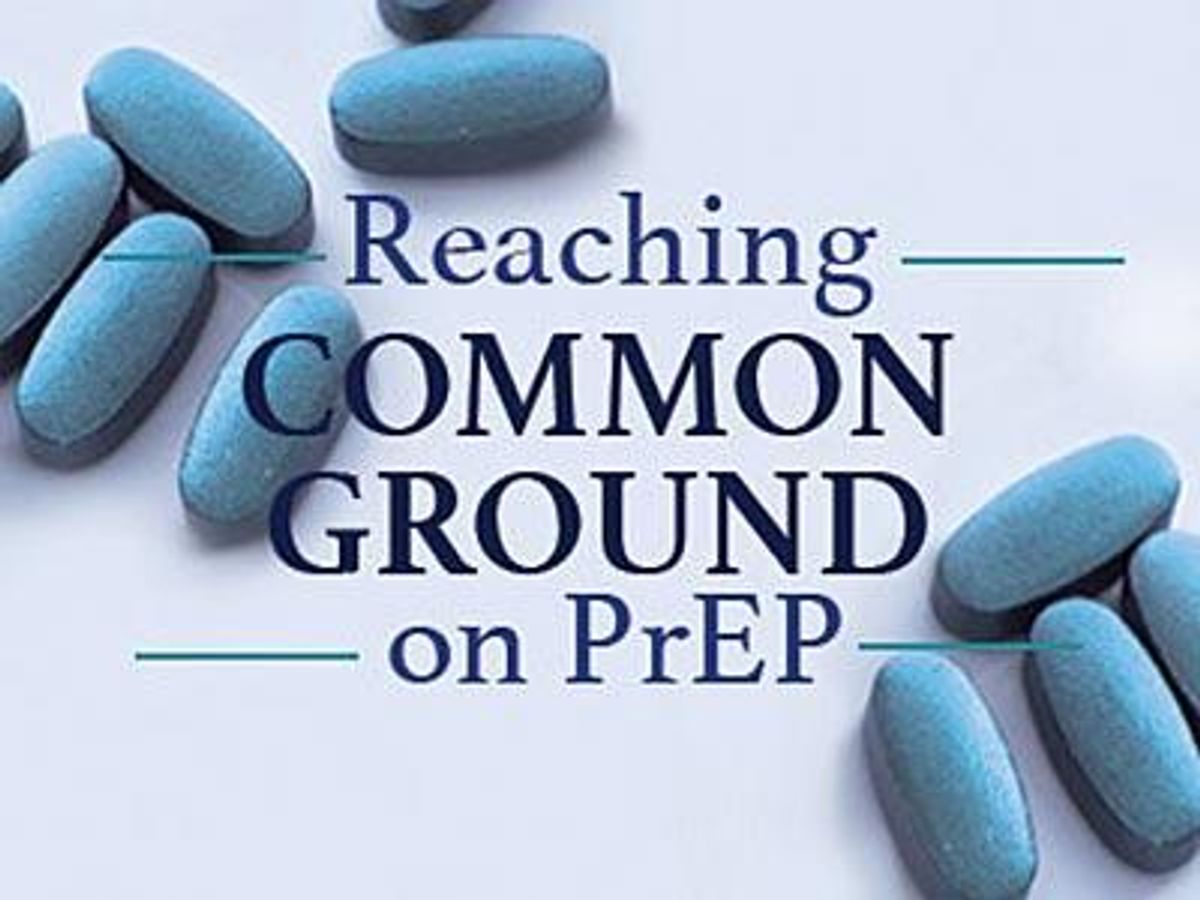AIDS Healthcare Foundation launched a new national ad campaign today that highlighted "reaching common ground on PrEP" which includes 11 principles on how to include the drug Truvada as PrEP in an HIV prevention strategy. The ad campaign comes a year after AHF President Michael Weinstein came under fire for saying that Truvada was a "party drug" and that encouraging the use of PrEP would lull gay men into thinking condoms were no longer necessary.
His comments were made despite the fact that the Centers for Disease Control and Prevention recommneded the use of PrEP in conjunction with condoms, not instead of condoms, and were widely condemed by activists as both out of town with current sexual practices and as "slut shaming."
AHF stuck by these statements earlier this summer when they put out ads in LGBT media reiterating their stance on PrEP. That ad campaign caused a backlash from other HIV/AIDS and LGBT organizations.
Now the new ad campaign appears to be a softening of AHF and Weinstein's views on PrEP, stating in the ads, "A sometimes emotional debate over the proper use of Truvada for prevention of HIV has now been raging for the last several years."
"Based on the current available scientific data, AIDS Healthcare Foundation offers the following principles for the administration of PrEP for the community's consideration," it reads. The 11 principles in the ad include the following:
1. Those who have not and will not use condoms and are having multiple sexual partners are the best candidates for PrEP.
2. Those who use condoms with every partner do not require PrEP.
3. Every person who is going to take PrEP should be tested beforehand and retested quarterly for HIV and other STDs.
4. The decision to begin PrEP should be thoroughly discussed with one's medical provider-including adherence, which should be monitored closely-and patients should be counseled to take the drug daily.
5. Persons who start PrEP and then discontinue its usage should be counseled to use condoms.
6. The goal should be to get every HIV + patient's virus to undetectable levels that would render them non-infectious (in which case their partner does not require PrEP).
7. Reducing the total number of sexual partners you have will decrease your risk of contracting HIV and other STDs.
8. In general, medical providers should engage in frank conversations about sexual risks with patients.
9. More study is needed, particularly among marginalized populations such as women, youth, African-Americans, and Latinos about the likelihood of adherence to PrEP.
10. In the future, an implant that delivers a steady level of medication or an injection that maintains blood levels for months will be preferable to daily dosing.
11. Gilead Sciences, the manufacturer of Truvada, should not have undue influence over decisions made by the medical community or at-risk populations about the use of PrEP.
While the principles made by AHF are new for them, they're not for anyone who has been working in PrEP and HIV prevention, according to Mitchell Warren, Executive Director of the global HIV advocacy organization AVAC, who said PrEP has had support among advocates since the cascade of scientific evidence of PrEP's effectiveness began in 2010.
Warren said he was "delighted that AHF has finally joined the rest of us" in coming out in support of PrEP. He went on to state that advocates had been pushing for PrEP approval since the first studies came out in 2010.
"As so many of us have said for so long, and now happily joined by AHF, PrEP is not perfect," he said. "It is not for everyone, and it is not forever. But it is an essential additional prevention option for people at risk of infection."
However, Weinstein still did not walk back from his earlier stance that PrEP should not be recommended en masse to the community.
"At the end of the day, PrEP is an individual option not a general solution," said Weinstein. "We believe PrEP should be prescribed on a case-by-case basis by medical providers working in conjunction with their patients, not as a community-wide public health intervention strategy, as the CDC recommended last summer when it recommended that 500,00 high-risk individuals go on PrEP."
The CDC's 2014 recommendations state that PrEP is recommended as "one prevention option" for men who have sex with men, injection drug users, and negative partners in serodiscordant relationships. In addition, the CDC recommended that anyone on PrEP should be monitored for HIV infection, renal function should be monitored every six months, that patients should have access to risk-reduction services, and that patients should be coached on PrEP efficacy and that it should be used in combination with other prevention methods.
"The science is clear. The earth is round, the sky is blue, and oral PrEP works when you take it," Warren said. "Thousands of advocates, researchers, policy makers, and, most importantly, individuals at risk in the U.S. and around the world have known this for several years now."
The new AHF ad campaign will run in national newspapers and magazines in seven markets: New York, South Florida, Los Angeles, San Francisco, Washington, Dallas, and Atlanta.








































































